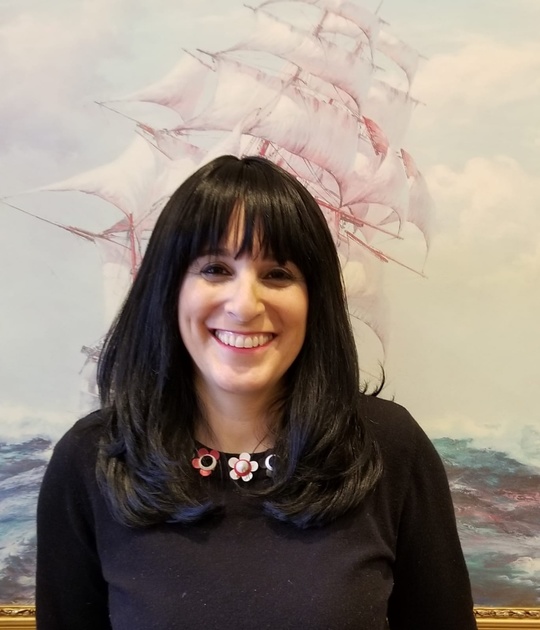
People stop me all the time.
Like, I am minding my own business while picking out tomatoes at the fruit store, and I meet a friend. She launches into a whole story about her sister's friend's mother's eighteen year old daughter who is having problems in hashkafah and she desperately needs my advice how to get that girl to agree to therapy. Now, how am I going to do that while I am trying to choose tomatoes for tonight's salad?
I wish I can create a large sign and string it over the main street of my community, or at least hire an airplane to do that sky-writing stuff. I would these words in huge letters: “You can't force anybody to go to therapy! So don't bother!”
But in teensy, weensy, little words scrunched on the bottom, I would add, “If somebody is trying to convince you to go to therapy because they are worrying about your religious behaviors—or lack of them, then chances are you are unhappy and making others unhappy. Do you want to know why therapy might help?”
If you are reading this article, and think maybe I am talking to you, hang on a second while I finish cutting up tomatoes for my salad and I will be right back to impart wonderful words of wisdom that my kids are positively bored of hearing.
I'm back.
I see you waited around till I got back. Thanks.
I will try to make this worth your time.
The blunt truth is this: for the most part, children grow up to swallow the religion their parents preach to them. They do it because they want to make their parents happy, to avoid punishment, a feeling of belonging, and because all that they know about religion is what their parents and teachers tell them. Somewhere along the way, the child gets older and starts thinking about her religion and asks questions to help her understand better. Then the teen/young adult begins to practice this religion out of a deeper understanding of its laws and ideology; the child internalizes its values and begins practicing it out of a realization of its benefits to her life in terms of morality, ethics, faith, and community. The highest level of practicing one's religion is one's own relationship with G-d and understanding of one's self in terms of her religion; in our case, as a religious Jew.
In the olden days, when my grandmother had no idea how to use a push-button phone after years of using a rotary dial (do you have any idea of what I am talking about?), and internet meant the volley ball got stuck inter deh net, when I was growing up, baalei teshuvah came to Yiddishkeit because they were asking penetrating, brilliant questions about the existence of G-d and how we know Moses wrote down the Bible from the words that G-d himself dictated to him. And they loved the answers.
Today, teens and young adults have no interest, not in the questions, and less so in the answers. And today, our baalei teshuvah speak about wanting a Jewish home with a spouse and children just like the guy who invited them off the Wall at the Old City of Jerusalem. What brings them back to Yiddishkeit is not the intelligent conversation around the Shabbos table; it's how the man treats his wife, how the mother speaks to her daughters. It's the warmth of the home, the relationships they observe, the love that flows easily from parent to child, and in the marriage.
What's this got to do with you, you ask?
Everything.
You think that you have questions about Yiddishkeit because it's restrictive, it's outdated, it's esoteric. But you are a product of today's generation. You are not interested in the answers even though you pretend to ask the questions. Why do I have to cover my hair? Why can't women wear pants? Why is it considered work to text on Shabbos? Why does Hashem care how long my skirt is? And on and on and on. You don't even know what the word esoteric means and yet you pretend to be deep and so smart with your questions that you think no one has asked before.
But your questions are driven by an unhappiness. And the unhappiness is driven by impaired relationships. If you would feel close to your mother instead of criticized, your questions would fall away and you would be one of those girls you envy for their effortless integration into the frum community, where they push their baby carriages and wait with supper (and tomato salad!) for their husbands who come home from kollel each day. If you would feel understood by your father instead of disdained, then you would be one of those girls who wants to date someone like their fathers, black hat and all. If you feel like you belonged to your parents, to your siblings, to your community, you would not be using every strategy pretending to reject them first before they can ultimately reject you.
This unhappy energy manifests itself in how you treat yourself. Maybe with emotional eating, with late mornings and an inability to obtain or keep a job; maybe with lack of desire to date or an inability to obtain a second date; maybe with a disinterest in going to college, attending seminary in Israel, or having fun with friends. It is manifest in how you treat others. You snap and snarl at siblings or friends; or you withdraw. You embarrass your parents, your siblings, yourself with actions inconsistent with the community in which you were raised.
“Right,” you tell me, “because I was raised in a hypocritical community. All they care about is the length of my hair, my wig.”
But I would venture to say that those are not the real reasons. We all must expect imperfections, in ourselves and in others. If we are unable to do that, it reflects an immaturity and it is usually because the most important persons in our lives have been unreliable in their behaviors and have made the world an unsafe place for us; sometimes physically, often emotionally. And we generalize that attitude to our community, to our religion, despite its inherent beauty in its purest form.
“But I am at here at Ohr Nava's Avinu Malkeinu event! Where do you think I even picked up your dumb article that presumes to tell me things about myself that you have absolutely no idea about? I do care about Yiddishkeit and it has nothing to do with anything! Everyone is just making me crazy about my skirt length (or substitute any other complaint in this line________________________) and if everyone would just let me live my life the way I want to, I would be fine.”
I'm glad to hear that.
So if everyone would just ignore your skirt length, then you would be able to find a job, find a guy, find a life? Hmm.
Rosh Hashanah is a time of new beginnings.
Aseres Yemei Teshuvah is a time of introspection, a hard look at our lives, and trying to really understand where we went wrong so we can do teshuvah.
Yom Kippur seals our fate for another year (although there is still Hoshana rabba, and Chanukah, and Tu Bishvat, and Purim—Yom K'Purim—and Shavuous....).
What would it be like for you to be an adult of this generation, realize how our actions are driven by our need for positive relationships, acknowledge how bad ones have hurt us badly, and figure out how to be healthy people that don't need to blame religion for our failures to thrive?
Here's what I tell teens and young adults who walk into my door, “While it is true that we are the product of our childhoods, that it may seem unfair when we don't get the parents or childhood we think we deserve, as adults we have the capacity to move forward, to learn to repair bad relationships or leave behind irreparable ones; to change our environment or seek better ones; to change ourselves and become people who others want to hire for jobs or marry. Therapy can help you do this.”
You can't change your past, but your present is a gift, and your future is waiting for you.
This Rosh Hashanah, be there.
Originally published in the Ohr Nava publication for the Avinu Malkeinu event
Look me up on LINKEDIN https://www.linkedin.com/in/mindy-blumenfeld-a8067583
Check out my book THERAPY SHMERAPY, available in bookstores and through Amazon
Browse through my previously published articles on my former blog Therapy Thinks and Thoughts at frumtherapist.com/profile/MindyBlumenfeldLCSW
Read current articles in my bi-weekly column THERAPY: A SNEAK PEEK INSIDE in Binah Magazine, available on newsstands every Monday.
 Previous
Previous

